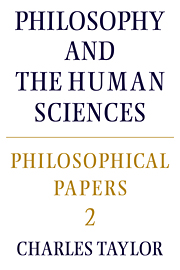12 - Kant's theory of freedom
Published online by Cambridge University Press: 05 June 2012
Summary
We live in an age of liberation movements. This is a sign of the degree to which freedom has become the central value of our culture. All sorts of demands are made from all sorts of quarters in the name of liberty. People seek recognition, equality, justice, but all as corollaries of ‘liberation’. This is something which has evolved in our civilization over the last three centuries. The process has been punctuated, and partly shaped, by paradigm statements by major thinkers, although it has amounted to much more than these: the movement of a whole culture. Among these statements, Kant's has been very important. It marked a crucial step on the way.
It would help to place Kant's theory of freedom in relation to other conceptions which developed before him. And for this purpose, I want to engage in some very schematic intellectual history, and contrast an influential ancient notion of freedom with a family of modern ones, following Benjamin Constant's De la liberté des anciens, comparée avec celle des modernes.
A notion of freedom quite common in the ancient world saw it as consisting in the status of the citizen. The citizen was free in one sense by contrast to the slave in that he was not servile; and in another sense in contrast to the metic or disfranchised, in that he could act as a citizen. Freedom, on this view, consisted in a certain place within society.
- Type
- Chapter
- Information
- Philosophical Papers , pp. 318 - 338Publisher: Cambridge University PressPrint publication year: 1985
- 6
- Cited by



